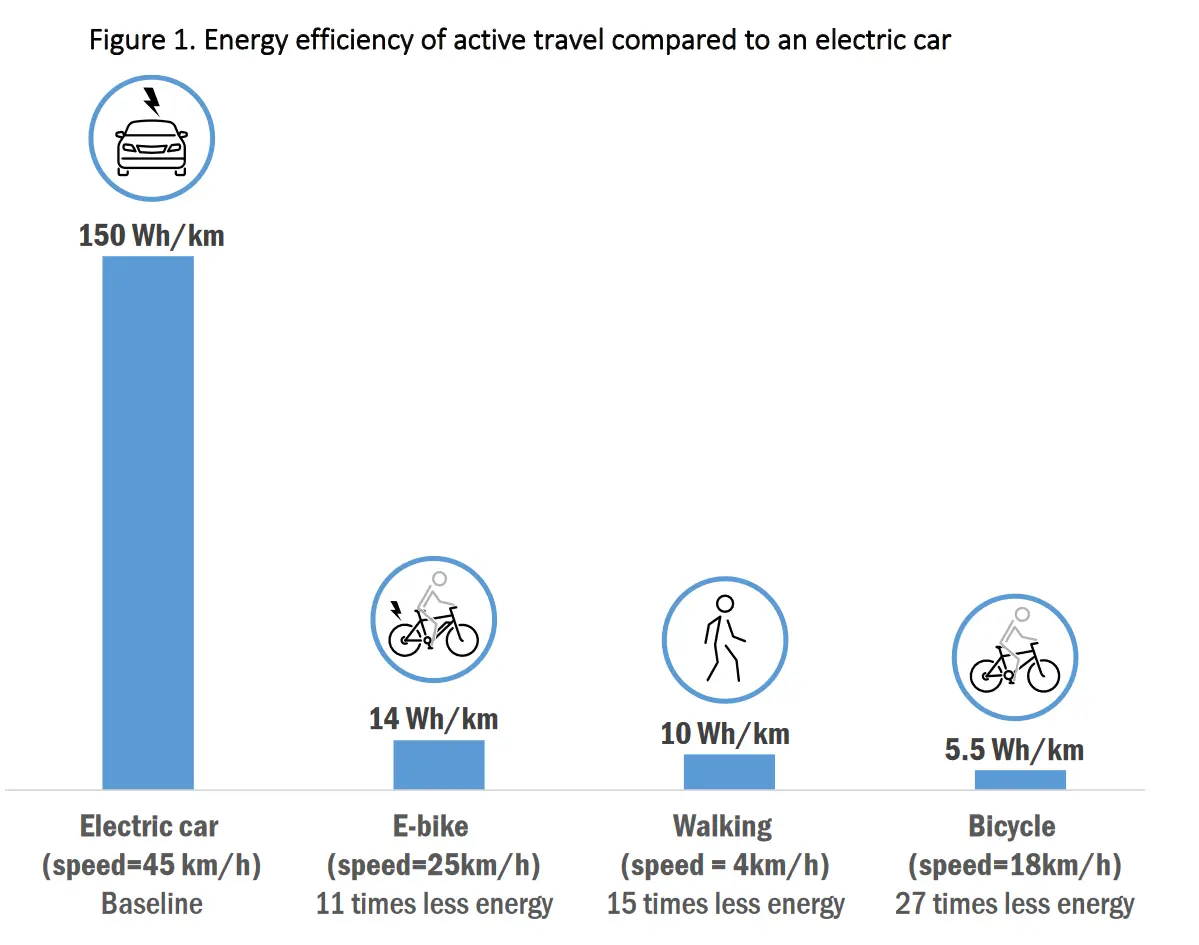365
you are viewing a single comment's thread
view the rest of the comments
view the rest of the comments
this post was submitted on 03 Mar 2024
365 points (91.2% liked)
Climate - truthful information about climate, related activism and politics.
5023 readers
266 users here now
Discussion of climate, how it is changing, activism around that, the politics, and the energy systems change we need in order to stabilize things.
As a starting point, the burning of fossil fuels, and to a lesser extent deforestation and release of methane are responsible for the warming in recent decades:

How much each change to the atmosphere has warmed the world:

Recommended actions to cut greenhouse gas emissions in the near future:

Anti-science, inactivism, and unsupported conspiracy theories are not ok here.
founded 1 year ago
MODERATORS

The car is correctly represented, about 0.15 KWh / km is what one gets.
However, the positioning of the e-bike looks strange to me. I've looked at previous studies and the e-biker has always been first in efficiency - because the efficiency of a motor far exceeds the efficiency of human digestion and muscles, while weight and speed remain comparable to an ordinary cyclist.
I think someone has calculated food energy incorrectly, or assumed that e-bikes move faster than they do. :)
I guess it's hard to gauge an e-bike since they often have a variety of operating modes ranging from progressively higher levels of pedal assist up to full throttle. But that's fascinating to think that an all-electric ride may actual consume less energy in the grand scheme of things. I had never looked at it that way!
It is interesting, but remember we need food to live anyway, and we need exercise to stay healthy. If we ask used ebikes on max pedal assist to get around, but then go to the gym and pound the treadmill for an hour, what does that do to the numbers? Or if we eat less and burn less energy, but then lose bone density and need more healthcare as we age (just one effect among many of not getting enough exercise)?
Oh for sure, yeah. I have a sedentary office job, so the e-bike commute is my primary source of exercise (particularly after I quit the gym during the pandemic), so I tend to keep the pedal assist low and try to get a workout. There are exceptions though. Sometimes I'm just tired or sore, or it's really hot with bad air outside, and I elect to go all electric on days like that. It's nice to have the option!
I think many people peddle just as hard on an electric bike, so the 5.5 kWh/km is a given, the rest is the energy required to go faster. Since air resistance increases with the square of the speed, it might very well be the case that 14 kWh/km at 25 km/h is more efficient than what the human alone would need to deliver for the same speed.
Edit: I failed to take into account that for the human at the same level of effort the power remains constant, not the energy per kilometer. Going faster at the same power output would reduce the energy expenditure per kilometer for the human to about 4 kWh/km, which would indicate that 10 kWh/km is being delivered by the motor to go faster.
That being said, it might be the case that they just calculated the energy needed to move the bicycle without taking the energy efficiency of the digestive system into account.
I just did a quick of my statistics. My bike typically provides an average of 100W in my hilly 28km commute (both ways) that takes about 1h15 minutes. That's less than 5Wh/km.
I'm using a fairly high setting, too, and judging by the fact that I don't break a sweat at all, I'm 100% sure I'm not pedaling as hard as I do on a regular bike.
If my calculations are right, at that speed with the numbers from the graph, that would put the energy requirement at about 10 kWh/km. That means that with your motor delivering half of that, the human output actually matches up pretty well with the graph. I’m saying output, because I’m convinced that the graph doesn’t take the calories being burned into account and only shows the work being done to move the bicycle.